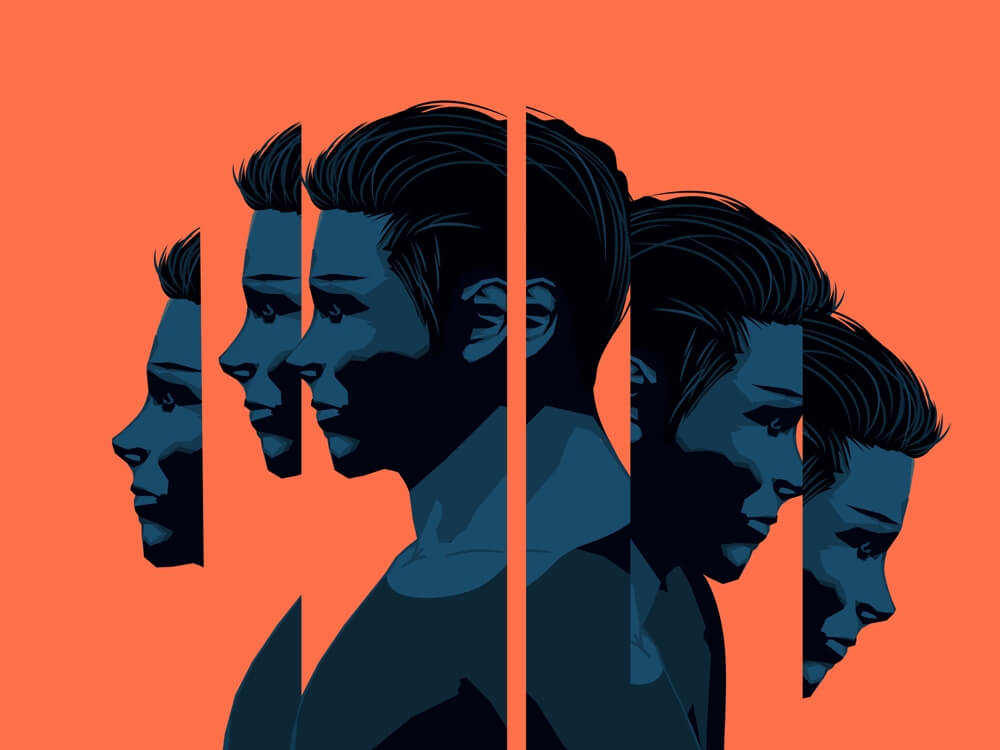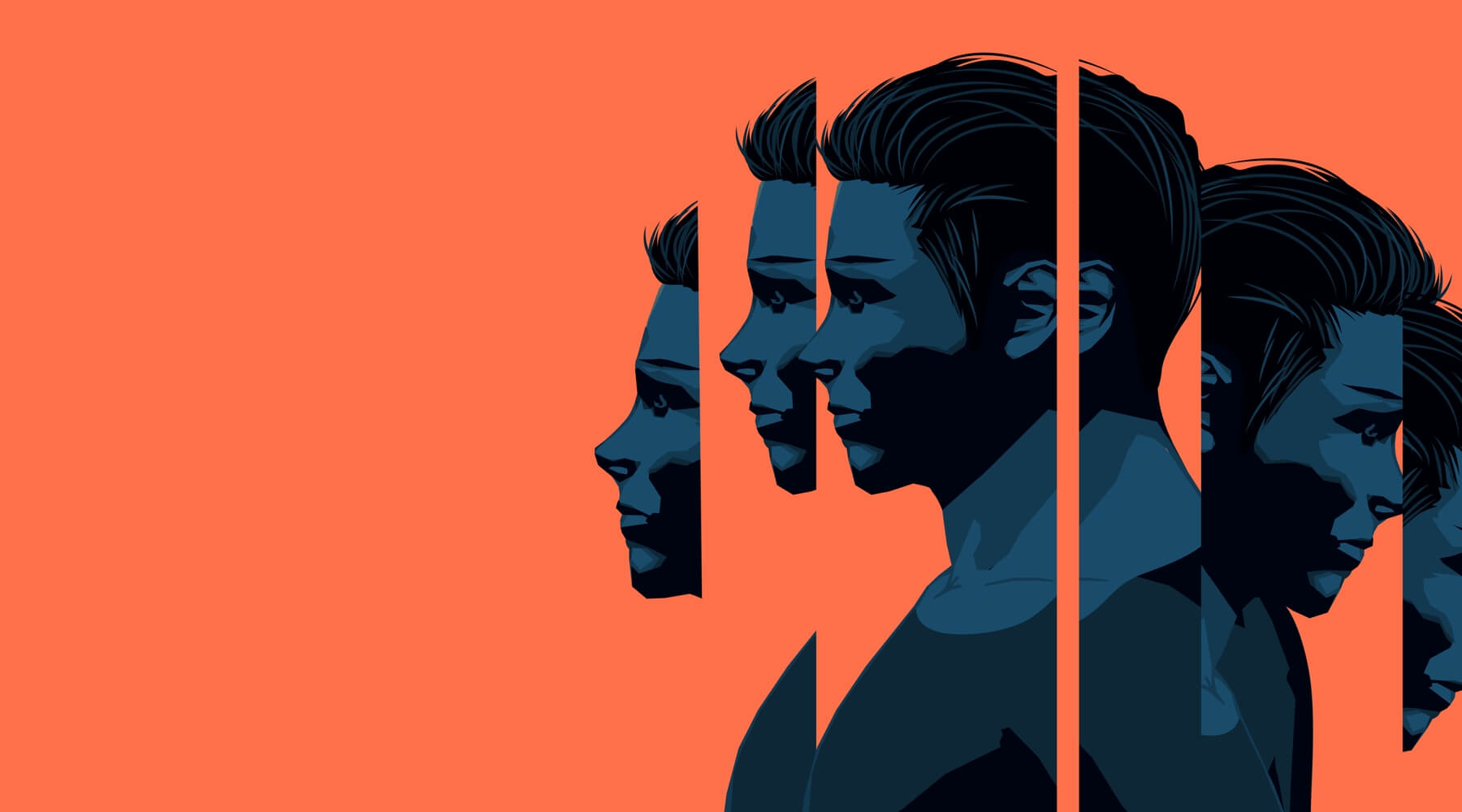“
We feel terminally unique in our anguish—like we’re the only freak experiencing these things.”
Our resident life coach is here to sort things out


Our resident life coach
is here to sort things out

I met Valet.’s co-founder Cory Ohlendorf nearly a decade ago at a fashion trade show—the kind of place where beautiful clothes and world class marketing are king, where how a product, brand or person looks on the surface is of the utmost importance. That's the world I trafficked in for a long time. I was a staffer at a prestigious men's magazine and then a freelance journalist covering the fashion beat around New York City and overseas at the biannual runway shows. For a small town guy from Maine, it was intoxicating to be around that much beauty, glamour and intrigue. I couldn't get enough.
I spent my days writing articles that told men how to dress and date, eat and drink, and travel well. My own life was consumed by the same desire to live the most impressive, Instagram-able existence I could. But as I chased after the perfect chair, the perfect vacation or perfect partner (which seemed so important to my happiness), I was suffering.
Like most modern men, I'd been hurting for a while. So long that I didn't really know the full extent or depth of my own pain. I'd get glimpses of it from time to time—it'd come out when I was stressed or hungover, when I was broke or when I spent time around my family. It seemed to also happen every time the line was long at Starbucks, or when someone cut me off in traffic. Flashes of rage or anxiety would occur. Maybe my chest would tighten or I'd have trouble sleeping. Maybe I'd just felt unmotivated and uninspired, like I wanted to give up. But since I had no language for what was happening inside me, I ignored it. I kept forging on, aiming to create the perfect life.
A reality check arrived after a particularly tough breakup in 2015. The woman who walked out the door was the partner of my dreams, and when she left, almost overnight, I became deeply depressed. It was obvious my ego had long been writing checks my body couldn't cash. The pain was so intense, I knew I wanted to either die or get help. I made a few calls, and got involved in group therapy and twelve step programs. And while spilling my guts to a room full of strangers was uncomfortable at first, it was a lot better than the alternative.
Coming clean about how scared and anxious I'd always been made me feel a lot better. I realized that as guys in this culture, we aren't encouraged to do that. In fact, we were taught as boys that most of our emotions aren't 'man' enough—vulnerability and sensitivity are off the table. Tears? Forget about it. There's no crying in baseball! For most of us, we grow up never having a safe space to be anything but put-together. We swallow any pain or discomfort and keep marching on.
This widespread male repression levels us. That's what we're seeing across America right now—generations of men who've been brought up to be what author bell hooks calls “emotional cripples.” The reports are coming in daily about how depressed, anxious and apathetic we are. Suicide rates, reports of violence and addiction are at all time highs.
“
We feel terminally unique in our anguish—like we’re the only freak experiencing these things.”
Our leaders and our heroes consistently falter. #MeToo, #TimesUp and #BlackLivesMatter have arrived like wrecking balls to our collective psyche. Afraid of saying anything wrong or “toxic” to friends or being ostracized on social media, many of us have become even more afraid of our own feelings. And since we're brought up never connecting with other men, we feel terminally unique in our anguish—like we're the only freak experiencing these things.
In reality, it's the opposite. Nearly every man I came across over the last five years in group therapy was facing the same stress, anxiety, depression and insecurities as me. Sure, all our problems looked different on paper, but at the core, it was the same story. Didn't matter if we were black, brown, white, gay, straight, bi, trans. It was the same grief, and the same guilt and shame that come from a lifetime of swallowed feelings.
At the core, many of us hated ourselves to varying degrees. Our shame was so thick we saw everything through it, like driving through a mud storm with bad wipers. We were so worried about trying to be so many things to so many people—our colleagues, our families, our partners, our Instagram followers—we'd forgotten about ourselves completely. Most of us felt lost. Many of us didn't even know who we were or why we were here.
It'd be easy to point to this current state of masculinity in our country and see despair. It'd be easy to read the headlines and believe we're at rock bottom. But my own experience with change is that only from this place of defeat comes the willingness to transform. Everywhere in my life I see frustrated men, men who are tired of the old definitions and archaic expectations of what a man is, who are ready for change, who are willing to give up the facade that everything is okay, and dive deep into the reasons why it isn't.
At a Thursday night online men's group I co-host with a friend, I see it every week. I see rage, I see tears and I see aliveness. I see the spark in men's eyes that comes when they realize they don't have to keep playing that James Dean, lone wolf, cowboy bullshit role anymore. They don't have to be alone.
All the great songs and movies tell us going at it alone is daring. Spy games. Never stay too long in one place. I think otherwise. You know what's really courageous? Intimacy. Getting to know yourself. Listening to others. Sticking around to look at all the messy, human stuff. All the wise men who have walked this path before have left the same piece of advice: Make the unconscious conscious, shine light on where before there was only darkness. Men tend to be outward focused. We're hardwired that way. We want the glory, the spoils, the recognition. But the work that faces us now is inside work. For most of us, there's this whole undiscovered universe inside our chests we have never explored. That is the new frontier.
Advertisement
We have to become Inside Men—taking honest looks at ourselves, our pasts and the world we want to help create. How do you overturn generations worth of conditioning? Well, you do it one conversation at a time. We must own our inherited grief, and come together to have the conversations we were told weren't okay: open, honest conversations, the kind where every voice has a platform and where nothing is off the table. When we do, walls inside us come down. We become more at ease with ourselves and around other people. We become better contributors at work, with our friends, and at home with our loved ones. We stop trying to prove ourselves and begin to relax. We ease into generosity and fun. In short, you become the man you always wanted to be.
Over the last decade, I've watched Valet. become a destination where smart guys go to read about how to improve their lives, one detail at a time. In that spirit, once a month, right here, we'll dive into a topic related to the inside work that men can do right now, and why it's important. This work has changed my life: I see it as more than just a tool in the tool belt of a modern, conscious man. It is the belt itself—the foundation that holds everything together. Because how perfect and well-tailored our lives look on the outside makes no difference if inside we're in shambles. Let's become Inside Men together.
You’ve now got a life coach at your disposal. Hit Sean up with any concern you’re currently struggling with: Trouble at work? Relationship worries, family struggles or general mental health concern? Let him help you tackle it each month in this column.
Advertisement
